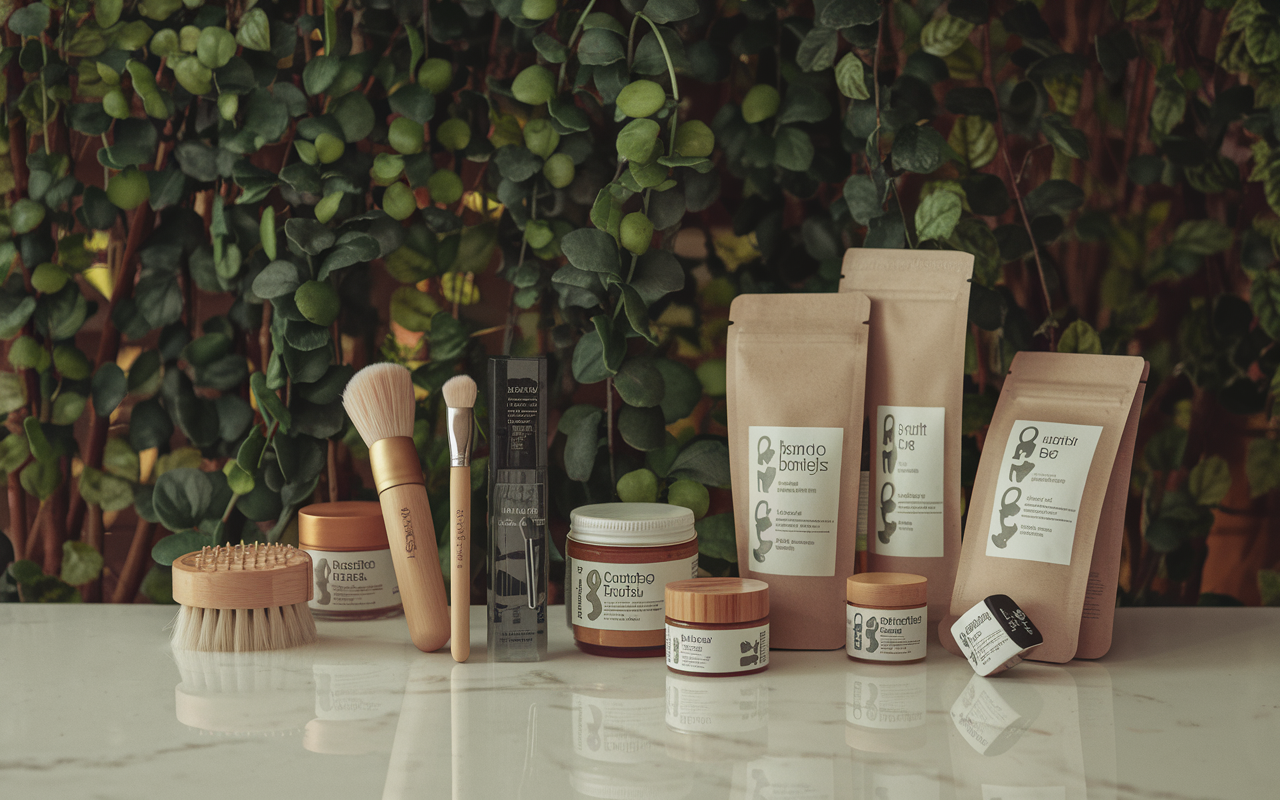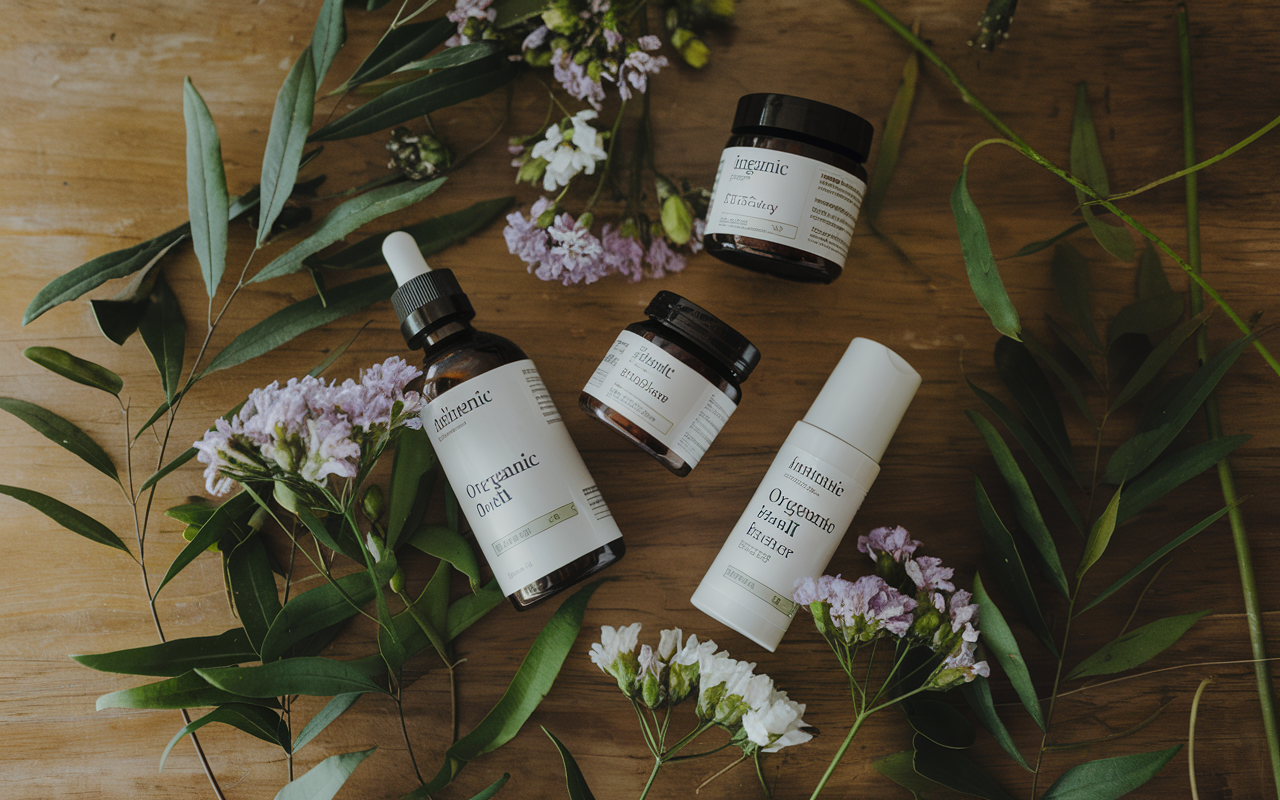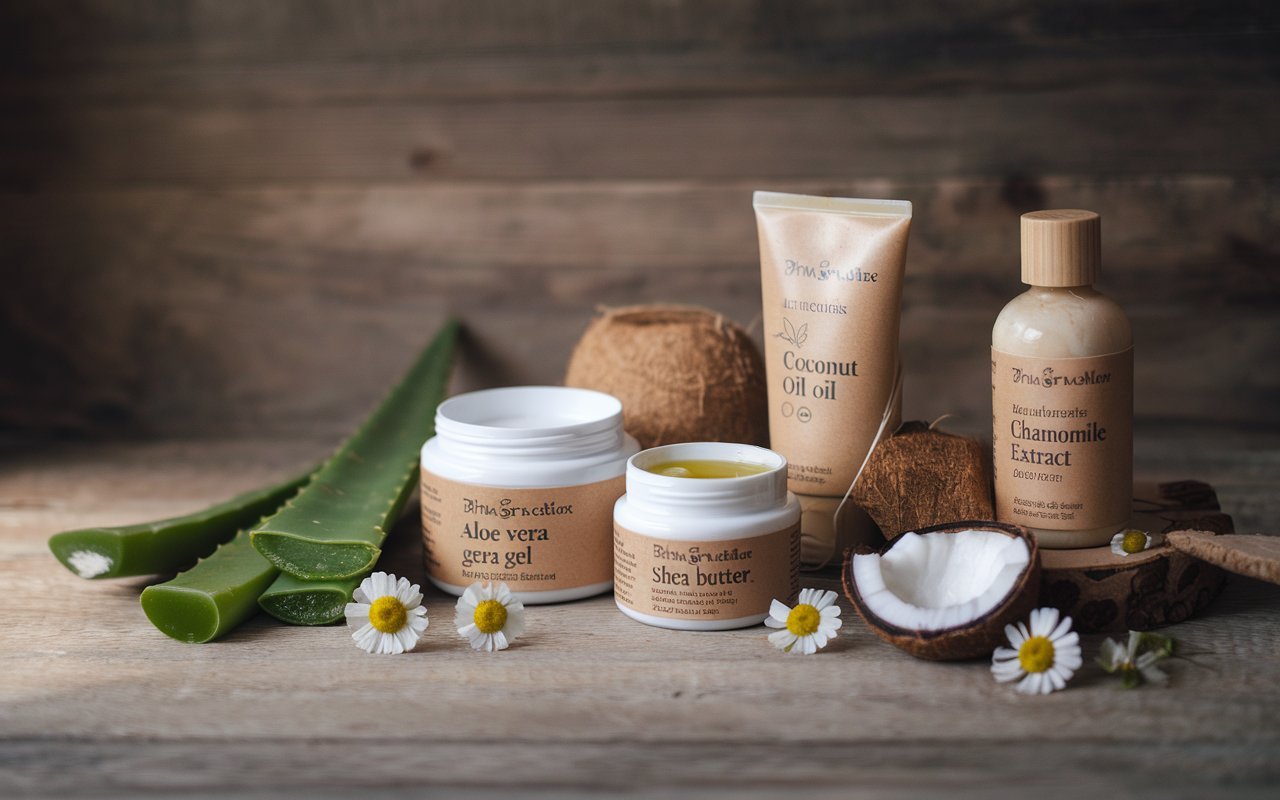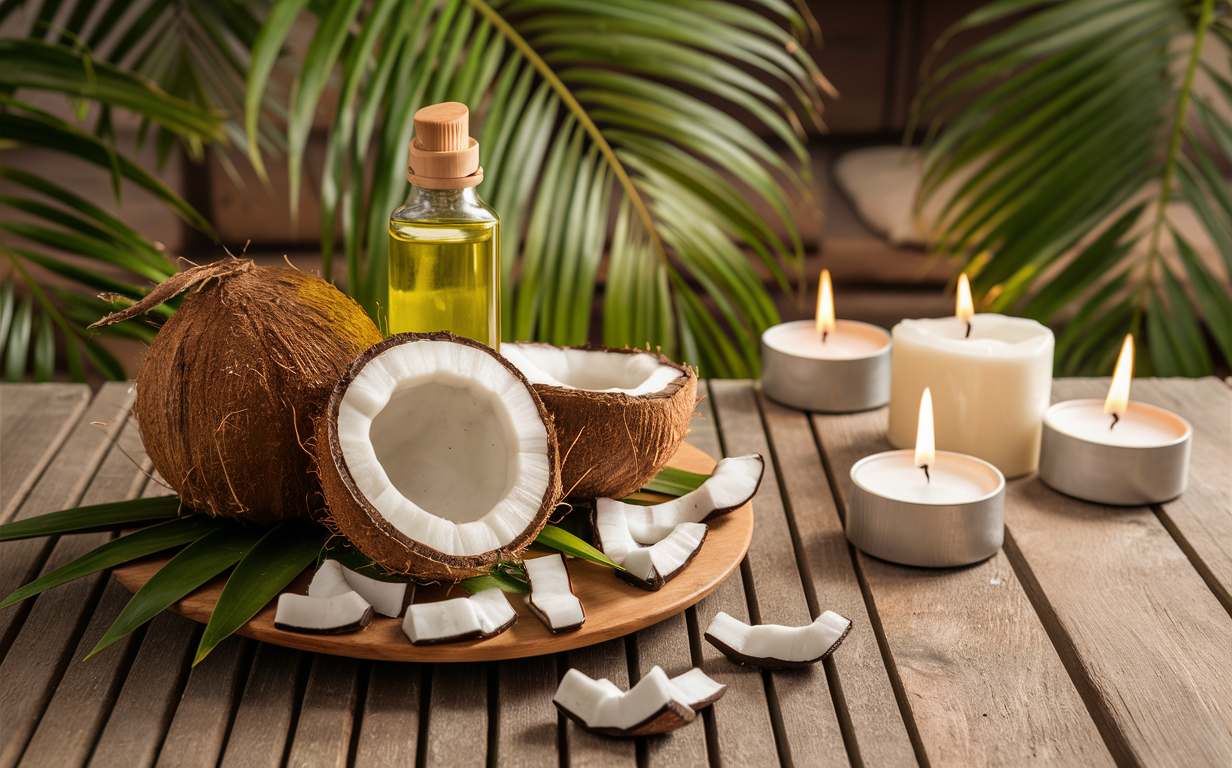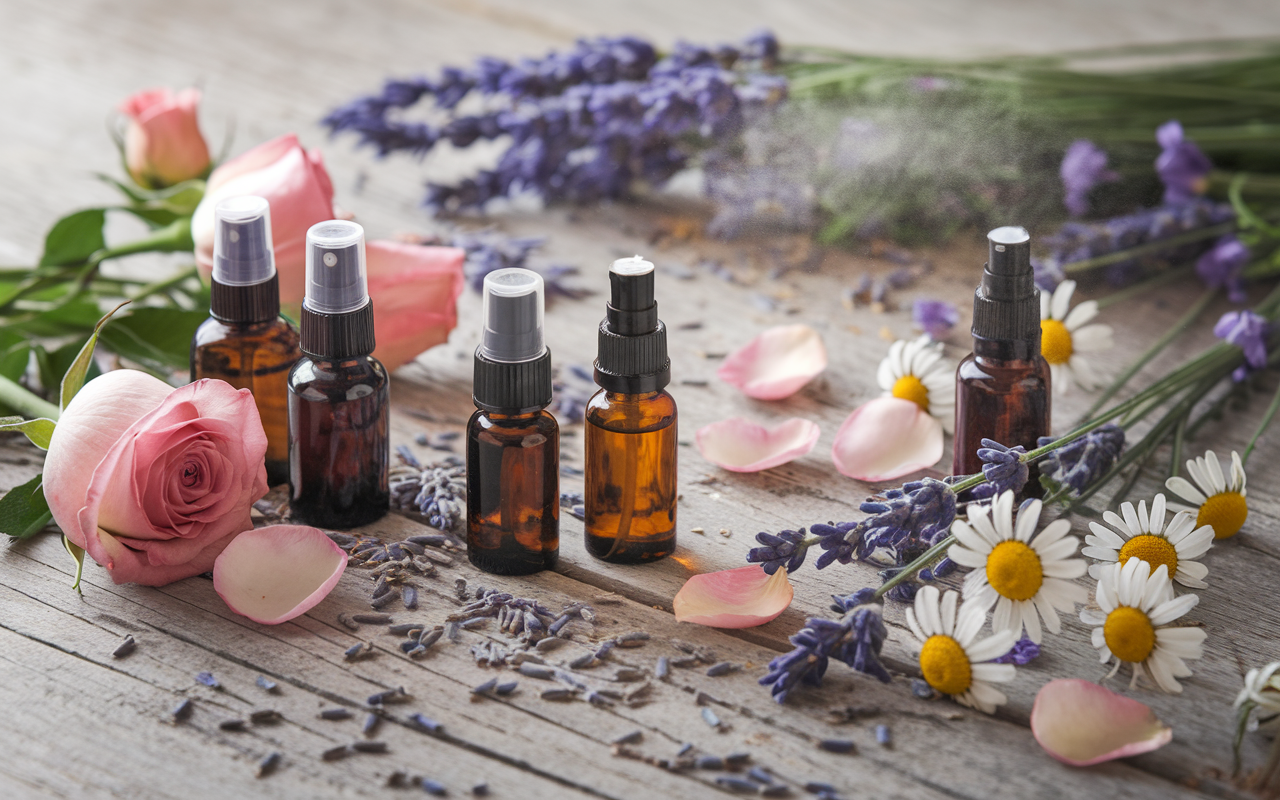
Introduction
We all dream of keeping that radiant glow for as long as we can. But as time takes its toll, wrinkles, fine lines, and dullness inevitably make their unwelcome appearance. The beauty industry is packed with promises of youth in a bottle, but have you ever wondered if organic skin care could be the answer you’re looking for? Maybe it’s time to explore the benefits of nature’s best kept secrets and how they can transform the way you age.
Understanding the Aging Process
Aging is more than just skin deep. It’s a journey that tells a story—a story of laughter, tears, endless summer days, and countless sleepless nights. But as beautiful as this journey is, the visible signs of aging can sometimes leave us feeling less confident. So, how does our skin actually age?
How Skin Ages Naturally
Our skin is made up of layers, each playing its part to protect, heal, and regenerate. The production of collagen and elastin by our skin decreases with age. Collagen, the protein responsible for keeping our skin firm, starts to break down, leading to sagging and wrinkles. Elastin, which keeps our skin bouncy and stretchy, loses its resilience. Together, this dynamic duo’s decline makes our skin look and feel older.
External Factors That Accelerate Aging
But it’s not just age working against us. Our environment and lifestyle choices also accelerate the aging process. Factors like sun exposure, pollution, stress, and poor diet wreak havoc on our skin. Free radicals—those nasty, unstable molecules—attack our skin cells, speeding up the signs of aging. Imagine these free radicals as little troublemakers, determined to undo the good work your skin is trying to do.
What Is Organic Skin Care?
So, what exactly is organic skin care, and why is everyone raving about it?
Definition of Organic Skin Care
Organic skin care refers to products crafted from ingredients that are organically farmed without the use of synthetic pesticides, artificial fertilizers, or genetically modified organisms (GMOs). It’s about choosing purity over chemicals, nature over synthetic. These products often feature plant extracts, essential oils, and natural minerals, promising gentleness and efficacy.
How Organic Products Differ from Conventional Ones
Conventional skin care products often contain synthetic additives like parabens, sulfates, and artificial fragrances. While these ingredients may offer quick results, they come at a cost—irritation, allergic reactions, and long-term damage to the skin. In contrast, organic skin care focuses on ingredients that work with your skin, rather than overpowering it. It’s like nurturing a garden with organic fertilizer rather than dumping harsh chemicals on the plants.
The Key Benefits of Organic Skin Care
Now, let’s delve into the magic of organic skin care and what makes it a game-changer for aging skin.
Natural Ingredients and Their Potency
Mother Nature is the ultimate healer. Organic skin care harnesses the power of plants and botanicals that have been used for centuries. These ingredients are packed with vitamins, antioxidants, and essential fatty acids that nourish, protect, and rejuvenate the skin.
- Antioxidants: Think of them as your skin’s protective shield, neutralizing free radicals and preventing damage.
- Essential Fatty Acids: These help keep your skin barrier strong and hydrated, combating dryness and rough texture.
Reduced Risk of Irritation and Allergies
With organic skin care, you’re less likely to experience the irritation often caused by synthetic chemicals. If you have sensitive skin, this is a huge relief. Imagine your skin being wrapped in a soft, comforting blanket instead of feeling raw and exposed.
Common Organic Ingredients That Combat Aging
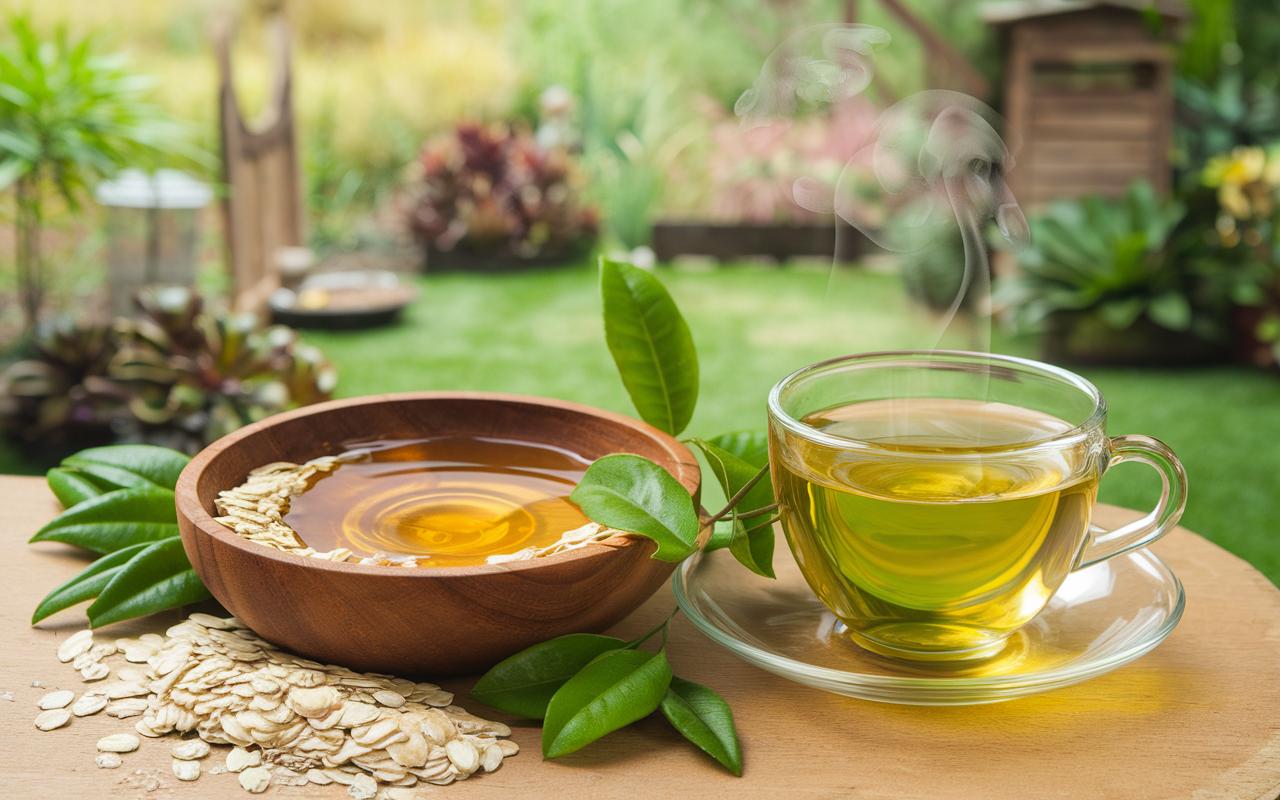
The world of organic skin care is filled with powerful natural ingredients, each offering unique benefits. Let’s look at some of the heroes that fight aging like warriors.
Aloe Vera: The Hydration Hero
There are more uses for aloe vera than sunburn relief. It’s a hydration powerhouse, delivering moisture deep into the skin layers. Its soothing properties also help calm irritation and inflammation, leaving your skin looking plump and youthful.
Green Tea Extract: The Antioxidant Powerhouse
Loaded with antioxidants, green tea extract protects your skin from environmental damage. It also has anti-inflammatory properties, which means it’s perfect for soothing irritated or acne-prone skin. Imagine sipping a calming cup of green tea—this is what your skin experiences when you use products infused with it.
Rosehip Oil: Nature’s Wrinkle Fighter
Rosehip oil is bursting with vitamins A and C, which help to fade dark spots and reduce fine lines. This golden elixir is like liquid youth, deeply nourishing the skin and promoting a more even complexion.
Hyaluronic Acid (Naturally Derived): The Hydration Magnet
Hyaluronic acid isn’t just a buzzword. When derived from natural sources, it’s a skin savior that holds up to 1,000 times its weight in water, making your skin look plump, smooth, and hydrated. Think of it as a tall glass of water for your thirsty skin.
How Organic Skin Care Fights Aging
So, how exactly does organic skin care help turn back the clock?
Boosting Collagen Production
Many organic ingredients, like vitamin C-rich fruit extracts, help to stimulate collagen production. This keeps your skin firm and elastic, reducing the appearance of fine lines and sagging.
Protecting Against Environmental Damage
Antioxidants found in organic ingredients create a protective barrier that shields your skin from UV rays and pollution. This doesn’t just slow aging; it prevents it. Imagine having an invisible shield that keeps your skin youthful and radiant.
Enhancing Skin’s Natural Barrier
The natural barrier of your skin is its first line of defense. Organic oils like argan and jojoba strengthen this barrier, locking in moisture and keeping irritants out. A strong barrier means fewer wrinkles and more glow.
Is Organic Skin Care as Effective as Conventional Anti-Aging Products?
This question sparks endless debates. Are organic products truly powerful enough to fight aging, or are they just for people who love the idea of all things natural?
Science vs. Nature: Finding the Balance
It’s easy to assume that nature can’t compete with science. But that’s not always true. Organic skin care may not offer overnight miracles, but it provides sustainable, long-term results. Unlike synthetic products, which sometimes work by aggressively altering your skin’s chemistry, organic skin care works in harmony with your skin.
What Studies Reveal About Organic Ingredients
Emerging research backs the efficacy of organic ingredients. For example, antioxidants from natural sources have been proven to reduce the formation of free radicals, and plant-based oils are known to improve skin elasticity and hydration. These studies remind us that nature’s remedies are not to be underestimated.
Potential Drawbacks of Organic Skin Care
There are always two sides just like any good story. While organic skin care has numerous benefits, it’s not without its challenges.
Slower Results: The Patience Game
Organic skin care products may require more time to show visible effects. If you’re looking for a quick fix, you might need to adjust your expectations. But keep in mind that those who wait will reap rewards. Your skin deserves the gentle, nurturing approach.
Higher Cost: Investing in Your Skin
Organic farming and extraction processes are more expensive, which can make organic skin care pricier. However, consider it an investment in your skin’s future. Wouldn’t you rather spend a bit more on products that nourish and protect rather than harm?
Choosing the Right Organic Products for Aging Skin
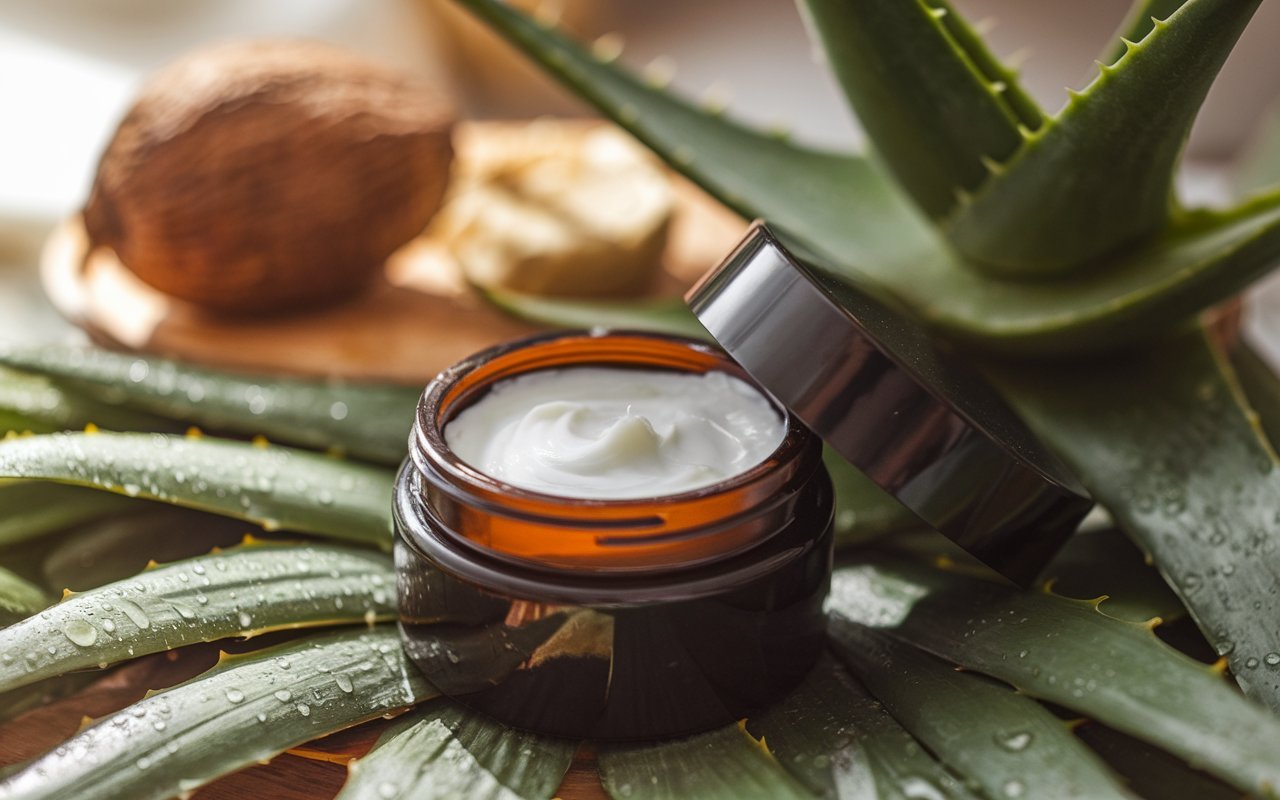
Feeling overwhelmed by the sheer number of organic products out there? With different options, it’s easy to feel lost. But don’t worry—you’re not alone. Let’s walk through how to make the best choices for your skin’s unique needs.
Understanding Your Skin Type
Before diving into organic solutions, it’s crucial to understand your skin type. Knowing this will help you choose products that enhance your skin’s natural beauty rather than irritate it.
- Dry Skin: If your skin often feels tight or flaky, opt for organic products rich in nourishing oils like argan, jojoba, or shea butter. These ingredients deeply hydrate and replenish your skin’s natural moisture barrier.
- Oily Skin: For those with oily skin, lighter formulations are key. Look for non-comedogenic options, like aloe vera-based gels or rosehip oil, which provide hydration without clogging pores.
- Combination Skin: You may need to mix and match your products, using richer creams on drier areas and lighter serums on oily zones. Ingredients like squalane and niacinamide work well for balancing combination skin.
Key Ingredients to Look For
When choosing anti-aging organic skin care, some powerhouse ingredients stand out for their effectiveness. Here’s what to keep in mind:
- Vitamin C: Known for its brightening properties, vitamin C can help fade dark spots and even out skin tone. It also protects against free radical damage, which is crucial for aging skin.
- Hyaluronic Acid: This natural hydrator holds up to 1,000 times its weight in water, plumping up the skin and reducing the appearance of fine lines.
- Coenzyme Q10 (CoQ10): This antioxidant helps the skin retain elasticity and reduces the visibility of wrinkles. As we age, our natural levels of CoQ10 decrease, making supplementation in skin care essential.
- Shea Butter: A rich emollient that deeply nourishes and softens the skin, perfect for dry or mature skin types.
- Green Tea Extract: Full of antioxidants, green tea can soothe inflammation and protect your skin from environmental stressors.
Reading Labels: The Organic Certification
Not all organic products are created equal. Just because a product claims to be “natural” or “organic” doesn’t mean it truly is. Look for certifications from trusted organizations to ensure you’re getting the best quality.
- USDA Organic: This label means the product contains at least 95% organic ingredients, excluding water and salt.
- EcoCert: A European certification that ensures strict organic and ecological standards are met.
- COSMOS: This certification guarantees that the product meets global organic and natural standards.
Navigating Ingredient Lists
Take the time to read ingredient lists carefully. Avoid harsh chemicals, synthetic fragrances, and parabens. Your aging skin deserves gentle, nurturing formulations free of irritants.
DIY Organic Skin Care Remedies
Want to take matters into your own hands? Your kitchen can sometimes provide the finest answers. These simple DIY recipes can transform your skin and save you money.
Homemade Face Masks for Anti-Aging
- Avocado and Honey Mask: Mash one ripe avocado and mix with a tablespoon of organic honey and a pinch of turmeric. Apply to your face and wait for 15–20 minutes. Avocado is rich in healthy fats and vitamins, while honey locks in moisture and turmeric adds a youthful glow.
- Banana and Yogurt Mask: Mash half a banana and mix it with two tablespoons of plain organic yogurt. This combination exfoliates, brightens, and firms the skin. Use weekly for a more even and supple complexion.
Natural Exfoliants for a Youthful Glow
Exfoliating regularly is key to maintaining radiant, youthful skin. But don’t rely on harsh scrubs—natural exfoliants work wonders.
- Brown Sugar and Olive Oil Scrub: Mix one tablespoon of brown sugar with one tablespoon of organic olive oil. Use circular motions to gently massage the scrub into your damp skin, then rinse with warm water. This exfoliant removes dead cells while nourishing your skin.
- Oatmeal and Honey Scrub: Blend oatmeal into a fine powder and mix with honey to form a paste. This gentle scrub soothes and exfoliates, making it perfect for sensitive skin.
Nourishing Facial Oils
Facial oils can be game-changers in your anti-aging routine. Here are some organic options that deeply hydrate and restore radiance:
- Rosehip Oil: Packed with vitamins A and C, rosehip oil promotes cell regeneration and reduces hyperpigmentation. It’s a dry oil, so it won’t leave a greasy residue.
- Argan Oil: Known as “liquid gold,” argan oil is full of antioxidants and essential fatty acids. It’s ideal for moisturizing and smoothing fine lines.
- Pomegranate Seed Oil: This luxurious oil is rich in antioxidants and has anti-inflammatory properties. It’s great for mature skin that needs an extra boost of nourishment.
The Power of Organic Serums
Serums are like concentrated magic for your skin. Invest in organic serums that target specific aging concerns:
- Vitamin E Serum: Vitamin E is a powerful antioxidant that repairs and protects the skin from damage. Apply a few drops before your moisturizer to lock in hydration.
- Peptide Serums: Peptides are amino acids that boost collagen production, which naturally declines with age. Organic peptide serums can improve skin elasticity and firmness.
Hydrating Mists and Toners
Hydrating mists and toners can refresh and prep your skin for the products that follow:
- Aloe Vera Mist: Aloe vera is soothing and hydrating. Create a DIY mist by mixing aloe vera gel with distilled water in a spray bottle.
- Rose Water Toner: Rose water balances your skin’s pH and tightens pores. Use it after cleansing and before moisturizing to revitalize your skin.
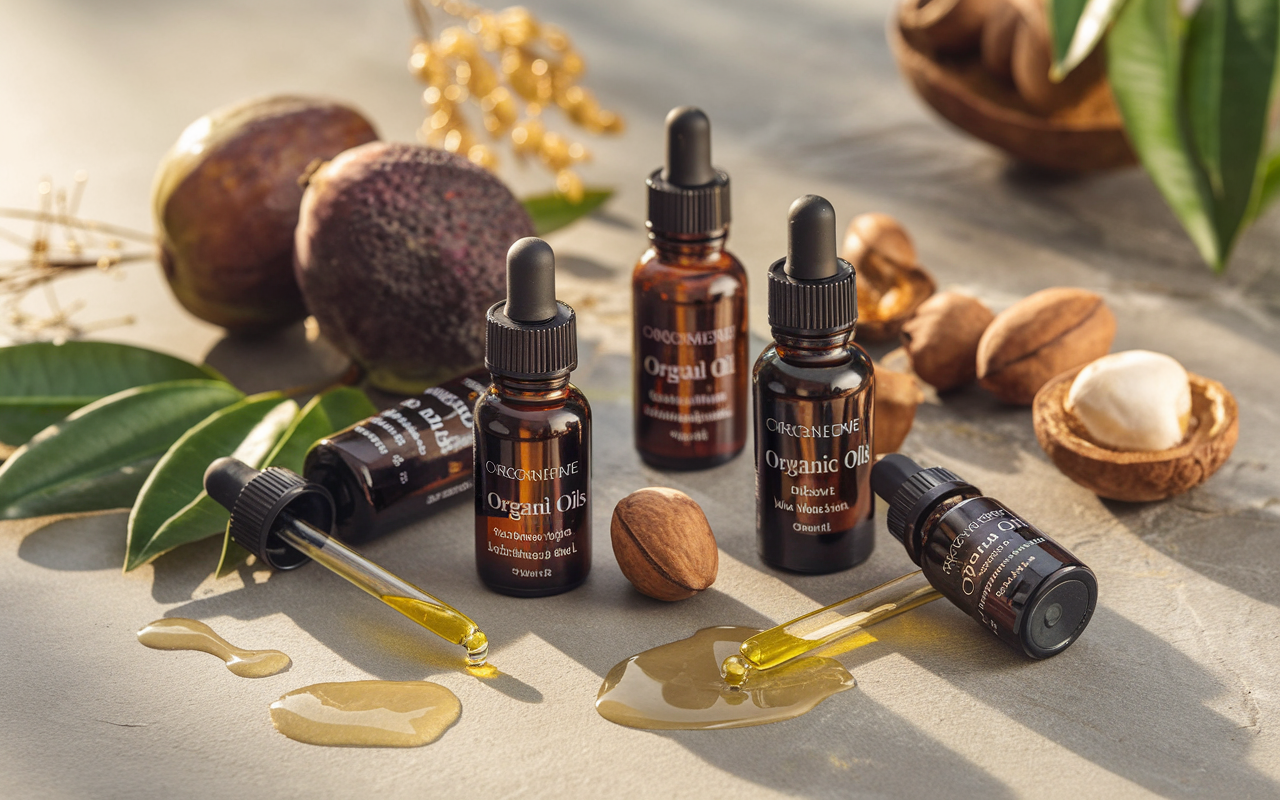
How to Incorporate Organic Skin Care into Your Routine
Switching to organic skin care can feel overwhelming at first, but it doesn’t have to be a daunting process. Think of it as a journey toward nurturing your skin with the purest ingredients. Here’s how you can seamlessly transition into using organic skin care products.
Step 1: Start with the Basics
You don’t have to overhaul your entire skin care routine overnight. Begin with the essentials: a gentle organic cleanser, a hydrating organic moisturizer, and a nourishing organic oil or serum. These products lay the foundation for healthy, youthful skin. Your skin will thank you, I bet.
Step 2: Gradually Add Anti-Aging Treatments
Once you’re comfortable with your new basics, start incorporating organic anti-aging treatments. Look for serums rich in vitamin C, retinol alternatives like bakuchiol, or hydrating masks with hyaluronic acid. Remember, organic skin care works best when given time to transform your skin gently.
Step 3: Stay Consistent
Consistency is key. Organic skin care requires patience and dedication, but the results are well worth the wait. Commit to a daily routine that nourishes your skin, morning and night. It is like caring for a garden, it will flourish if you give it the right care.
Real-Life Stories: How Organic Skin Care Transformed Aging Skin
Hearing stories from people who have experienced the magic of organic skin care can be incredibly inspiring. Take, for instance, Sarah, a 45-year-old teacher who battled with dry, dull skin for years. After switching to an organic routine with rosehip oil and green tea extract, she noticed a remarkable difference. Her fine lines became less noticeable, and her skin seemed brighter and felt softer.
Or consider Maria, a 50-year-old grandmother who struggled with sensitive skin. She found that organic products, free from harsh chemicals, soothed her irritation and gave her a youthful glow she hadn’t seen in years. These stories remind us that real, tangible results are possible with organic skin care.
Sustainability: The Heart of Organic Skin Care
Beyond the benefits for your skin, choosing organic skin care also means choosing a healthier planet. By supporting organic farming practices, you’re contributing to a more sustainable world. Organic farming reduces pollution, saves water, and promotes biodiversity.
Ethical Sourcing and Eco-Friendly Packaging
Many organic skin care brands are committed to ethical sourcing and eco-friendly packaging. This means you can indulge in your beauty routine knowing you’re making choices that protect the environment. It’s a beautiful cycle: caring for your skin while also caring for the earth.
Animal Cruelty-Free Practices
Another compelling reason to choose organic skin care is the commitment many brands have to cruelty-free practices. Animals should never suffer in the name of beauty. Organic skin care often aligns with this value, giving you peace of mind.
The Emotional Connection to Organic Skin Care
There’s something deeply emotional about choosing organic skin care. It’s not just about aesthetics; it’s about self-care and embracing the natural beauty you already possess. Each time you apply a nourishing organic serum or a hydrating mask, you’re telling yourself, “I deserve the best, and I’m worth it.”
Imagine starting your day with the fresh scent of lavender or ending it with the soothing aroma of chamomile. These simple pleasures can transform your self-care routine into a ritual that rejuvenates not only your skin but also your spirit.
Empowering Yourself with Knowledge
Embracing organic skin care is about empowerment. It’s about understanding the ingredients you’re putting on your skin and making informed decisions. You’re in control, and that’s a beautiful feeling. With every organic product you choose, you’re saying no to harsh chemicals and yes to natural, nourishing solutions.
Conclusion: Embrace the Power of Organic Skin Care
Aging is a natural, beautiful process, but that doesn’t mean we can’t take steps to care for our skin in the most loving and nourishing way. Organic skin care offers a gentle, effective, and sustainable approach to looking and feeling youthful. It’s a long-term commitment to your skin’s health and the environment.
So, can organic skin care help with aging? Absolutely. It may not be an instant fix, but it’s a journey worth taking—one that honors your skin, your body, and our planet. Are you ready to embrace the magic of organic skin care and give your skin the care it truly deserves?
FAQs
Q: How does organic skin care help with aging?
A: Organic skin care products are rich in natural antioxidants, vitamins, and nutrients that promote collagen production, hydrate the skin, and protect against environmental damage.
Q: Can organic skin care work for all skin types?
A: Yes! Organic skin care is generally suitable for all skin types, including sensitive, oily, dry, and combination skin. You just need to choose the right products for your skin’s unique needs.
Q: What are the best organic ingredients for anti-aging?
A: Ingredients like rosehip oil, aloe vera, green tea extract, and shea butter are highly effective in combating signs of aging and nourishing the skin.
Q: Is organic skin care more expensive?
A: It can be, but think of it as an investment in your skin’s long-term health. Quality organic ingredients and ethical practices do come at a cost, but the benefits often outweigh the price.
Q: How do I know if a product is truly organic?
A: Look for certifications such as Soil Association, EcoCert, or USDA Organic. Always read labels carefully and research the brand’s practices.
Also Visit:
The Best Organic Skin Care Tips for Sensitive Skin 2024
How to Read Labels: Finding Truly Organic Skin Care Products 2024
5 Eye-Opening Misconceptions About Organic Skin Care in 2024
